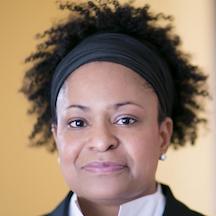 Lisa M. Coleman was named senior vice president for global inclusion, diversity, and strategic communication at New York University. She will be the university’s first Chief Diversity Officer. Dr. Coleman has been serving as chief diversity officer and special assistant to the president at Harvard University.
Lisa M. Coleman was named senior vice president for global inclusion, diversity, and strategic communication at New York University. She will be the university’s first Chief Diversity Officer. Dr. Coleman has been serving as chief diversity officer and special assistant to the president at Harvard University.
Coleman is a graduate of Denison University in Granville, Ohio. She holds a master’s degree in Black studies and women’s studies from Ohio State University and a Ph.D. in American studies from New York University’s Leonard N. Stern School of Business.
 Constance Tucker was named vice provost for educational improvement and innovation at Oregon Health & Science University in Portland. She was the assistant dean of faculty development at the Virginia Commonwealth University School of Medicine.
Constance Tucker was named vice provost for educational improvement and innovation at Oregon Health & Science University in Portland. She was the assistant dean of faculty development at the Virginia Commonwealth University School of Medicine.
Dr. Tucker is a graduate of Washington University in St. Louis, where she majored in French. She holds a master’s degree in higher education student development from the University of Iowa and a Ph.D. in educational psychology from the University of Memphis.
 Claude Poux is the new associate director of the health professions program at Dartmouth College in Hanover, New Hampshire. He held several administrative posts at Harvard University, including assistant director of human resources at Harvard Law School.
Claude Poux is the new associate director of the health professions program at Dartmouth College in Hanover, New Hampshire. He held several administrative posts at Harvard University, including assistant director of human resources at Harvard Law School.
Poux is a graduate of Brandeis University, where he majored in physics and philosophy. He holds a master’s degree in journalism from Columbia University and an MBA and a master of public policy degree from the University of Chicago.
 Charima Young was named director of local government and community relations at Pennsylvania State University. She has been serving as the associate state director of community outreach in Georgia for AARP, formerly the American Association of Retired Persons.
Charima Young was named director of local government and community relations at Pennsylvania State University. She has been serving as the associate state director of community outreach in Georgia for AARP, formerly the American Association of Retired Persons.
Young is a graduate of Spelman College in Atlanta, where she majored in history. She earned a master’s degree in public policy from the Georgia Institute of Technology.
 Cliff Scott is the new director of the Office of Equal Opportunity Programs at the University of South Carolina. He has twice served as interim director of the office and was also employed in the university’s Office of the General Counsel.
Cliff Scott is the new director of the Office of Equal Opportunity Programs at the University of South Carolina. He has twice served as interim director of the office and was also employed in the university’s Office of the General Counsel.
Scott is a 1981 graduate of the University of South Carolina School of Law.
 Moses T. Alexander Greene was named director of the African American Cultural Center on the campus of North Carolina State University in Raleigh. He was chief communications officer and assistant professor of media and communications at Saint Augustine’s University in Raleigh.
Moses T. Alexander Greene was named director of the African American Cultural Center on the campus of North Carolina State University in Raleigh. He was chief communications officer and assistant professor of media and communications at Saint Augustine’s University in Raleigh.
Greene earned a bachelor’s degree and a master’s degree in new media management at Syracuse University in New York.

